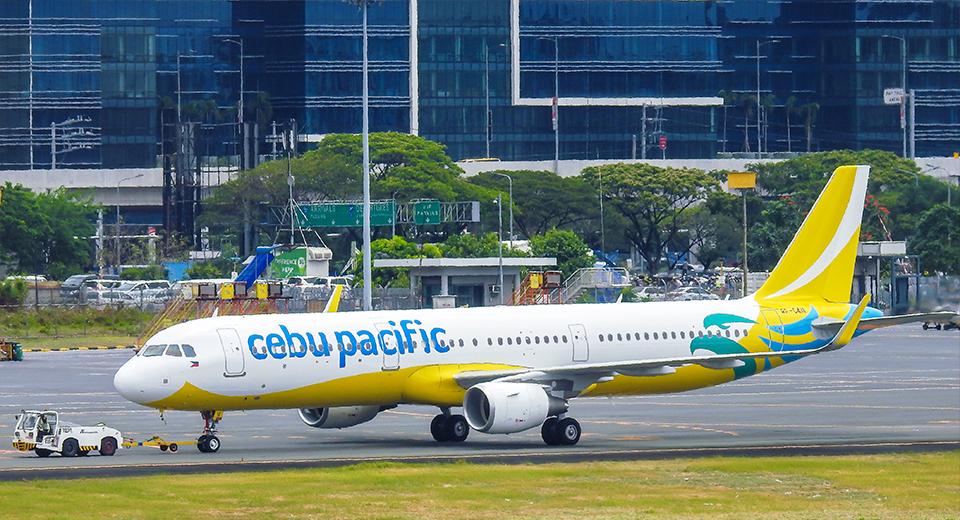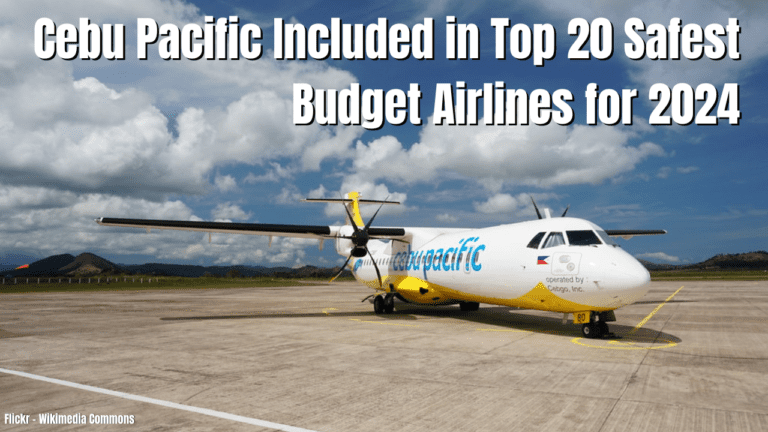In a massive development within the aviation industry, the Pratt & Whitney Engine trouble is poised to have critical consequences on the Cebu Pacific Fleet. Due to engine manufacturing issues, the fleet braces itself for up to 20 planes to be grounded, starting with ten as early as January 2024. This disruption has also contributed to a downward revision of Cebu’s seat growth projection for 2024. However, on a hopeful note, the arrival of new aircraft as part of their fleet expansion plans will relieve this situation.

Details Regarding Pratt & Whitney Engine Issues

Background on the Pratt & Whitney engine manufacturing issues
You may have noticed some concerning headlines lately about Pratt & Whitney, a leading engine manufacturer for commercial aircraft, grappling with issues in their production process. These problems revolve around the manufacture of their engines, specifically powdered metal defects identified within certain engine models. This situation has prompted a rise in inspections and groundings of aircraft globally.
Affected Engine Model: PW1100G
The engine model specifically implicated in this situation is the PW1100G. This engine is a popular choice among airlines for its efficiency and performance. However, the issue with powdered metal defects has resulted in a growing concern about their functional reliability, prompting airlines to take proactive measures to ensure passenger safety.
Estimated number of engines to be removed for inspection
In response to the identified manufacturing defects, Pratt & Whitney estimates that 600 and 700 engines must be removed for comprehensive inspections from 2023 to 2026. These inspections ensure that any engines with potential issues are spotted and rectified before they can lead to larger problems.
Estimated global impact on A320neo and A321neo fleet
The global impact of this situation is significant. Many carriers worldwide have announced plans to ground and inspect their PW1100G-powered jets, with many of these planes being part of the A320neo and A321neo fleets. These groundings will likely lead to a sizable reduction in available aircraft globally.
Cost of issues to parent company RTX
The financial implications for Pratt & Whitney’s parent company, RTX, are significant. RTX has written off over $3 billion to address these manufacturing issues, a figure that only considers the estimated inspection cost and does not include potential repairs.
Cebu Pacific Fleet Impact

Cebu Pacific’s current fleet breakdown
Turning our attention to the Philippines-based carrier Cebu Pacific, let’s first look at the airline’s current fleet. Cebu Pacific has many Pratt & Whitney PW1100G engines in use across their fleet – aircraft using these engines include 17 A320neo, 12 A321neo, and six A330s.
Proposed number of grounded jets by January 2024
Given the identified engine issues, Cebu Pacific has announced that it will be grounding up to 20 of its aircraft due to potential engine concerns. By January 2024, 10 of the airline’s A320neos and A321neos will have been grounded for inspections, maintenance, and potentially necessary repairs.
Possibility for more groundings in the future
The potential for further groundings in the future is not off the table as the situation continues to evolve. The number of grounded aircraft could reach as many as 20 if more defects are identified.
Prior instances of Cebu Pacific grounding the A320neo family fleet for engine maintenance
Due to engine maintenance issues, this is not the first instance of Cebu Pacific grounding its A320neo fleet. Several aircraft were pulled from service for necessary maintenance and inspections earlier this year.
Impact on Other Global Carriers
Groundings and inspections in other airlines
Cebu Pacific is not the only airline affected by Pratt & Whitney’s engine issues. Carriers worldwide, including All Nippon Airways, Spirit, and Turkish Airlines, have also decided to ground and inspect their PW1100G-powered aircraft.
Challenges for Maintenance, Repair, and Overhaul (MRO) facilities globally
With a sharp increase in demand for inspections and potential repairs, MRO facilities worldwide will likely face substantial capacity and resource allocation challenges.
The problem of spare part scarcity
Another hurdle the aviation industry may encounter in dealing with this situation is the potential scarcity of spare parts. As more engines are called in for inspection and potential repair, spare parts could become increasingly hard to come by.
Cebu Pacific’s Growth Projections and PW1100G Issue
Initial growth projection
Before the engine issues came to light, Cebu Pacific had strong growth projections, aiming for a significant increase in capacity over the next few years.
Revised growth projection following engine issues
However, with the unexpected engine complications, Cebu Pacific has had to revise their growth projection downward to between 5% and 8% over 2024.
Impact on ‘double-digit’ growth plans
The engine issues have dealt a direct blow to the airline’s ambitious ‘double-digit growth’ plans. With a potential 20 of their planes placed on the sidelines for inspection and possible maintenance, achieving such high growth is now a much more daunting task.
Cebu Pacific’s Operational Resilience Plans
Leases for new and used planes and engines
Despite these challenges, Cebu Pacific remains resilient and has put “operational resilience” plans in place, which include procuring leases for new and used planes and engines to offset the impact of the PW1100G issue.
Resilience plans will facilitate continued growth
With these measures in place, Cebu Pacific still hopes to maintain some growth. Even though it’s likely to be slower than initially projected, the airline is determined to weather this challenging period and emerge stronger.
Cebu Pacific’s Fleet Expansion Plans
Current orders with Airbus
Cebu Pacific’s expansion plans are also ongoing. According to Airbus, the airline has ordered seven A320neo, 22 A321neo, and 11 A330-900s, which will bolster their fleet once delivered.
Proposed $12 billion order for more planes
Cebu Pacific is also contemplating placing an extensive $12 billion order for up to 150 new planes shortly as part of its continued growth strategy.
New arrivals in 2023 and 2024 to offset groundings
New aircraft from the A320neo family have already begun arriving in 2023, and more are set to arrive by the end of 2024. These additions will offset the impact of the early-year groundings and help keep operations running smoothly.
Overview of Cebu Pacific’s Fleet
Breakdown of A320neo family aircraft
The A320neo family aircraft in Cebu Pacific’s fleet currently includes 30 aircraft, with 17 A320neo models and 13 A321neo models.
Breakdown of A321neo aircraft
As for A321neo aircraft, the airline currently has 12 in its fleet. These newer models provide more efficient fuel consumption and offer higher passenger capacity.
Details on widebody fleet
Regarding their widebody fleet offerings, Cebu Pacific has six A330 models. These aircraft provide the airline with long-haul capabilities and significantly larger passenger capacity.
Impact on Cebu Pacific Operations
Operational changes due to grounding
The grounding of up to 20 aircraft will inevitably lead to operational changes within Cebu Pacific. The airline must adjust flight schedules, reassign aircraft, and potentially reroute certain services to maximize efficiency.
Possible delays or cancellations of flights
The airline’s customers should be prepared for potential changes to flight schedules, including possible delays or cancellations. Cebu Pacific and other affected airlines must make challenging decisions to maintain their services with fewer aircraft.
Impact on financial performance
These operational changes and aircraft groundings also affect Cebu Pacific’s financial performance. The cost of inspections, the possibility of repairs, and the loss of income from grounded aircraft will all impact the airline’s bottom line.
Engine Replacement and Maintenance
Process for engine repair and replacement
Ensuring engine safety is a complex process. It involves the removal of the engine, thorough inspections, potential repairs or replacements, and then reinstallation onto the aircraft. Each step in this process is meticulously conducted to ensure the highest safety and reliability.
Timeframe for engine inspections and replacements
The timeframe for engine inspections and replacements can be substantial. Given the complexity and meticulous nature of the work required, it cannot be rushed.
Impact on daily operations during engine replacement
During the engine replacement and maintenance period, daily operations of affected aircraft will undoubtedly be disrupted. Aircraft will be grounded, requiring careful schedule adjustments to minimize disturbances to passengers.
Future Outlook for Cebu Pacific and Pratt & Whitney
Expected resolution of Pratt & Whitney engine issues
While the issues with Pratt & Whitney’s engines are concerning, they are expected to be resolved eventually. Once the problematic engines have been inspected and any necessary repairs made, these engines will be returned to service.
Projected future partnership between Cebu Pacific and Pratt & Whitney
Although these engine issues present a significant challenge, it’s unlikely to lead to a severing of ties between Cebu Pacific and Pratt & Whitney. The two companies have a longstanding partnership, and dealing with challenges like these is part of the airline business.
Impact on airline-engine manufacturer relationships
This situation is likely to influence airline-engine manufacturer relationships in the future. It might prompt more stringent quality controls and tighter contracts to identify and correct potential problems before impacting airline operations significantly.
For more information, booking, and information, head to Cebu Pacific Air Official Website or call the reservation hotlines (02) 8702 0888 or (032) 230-8888.









